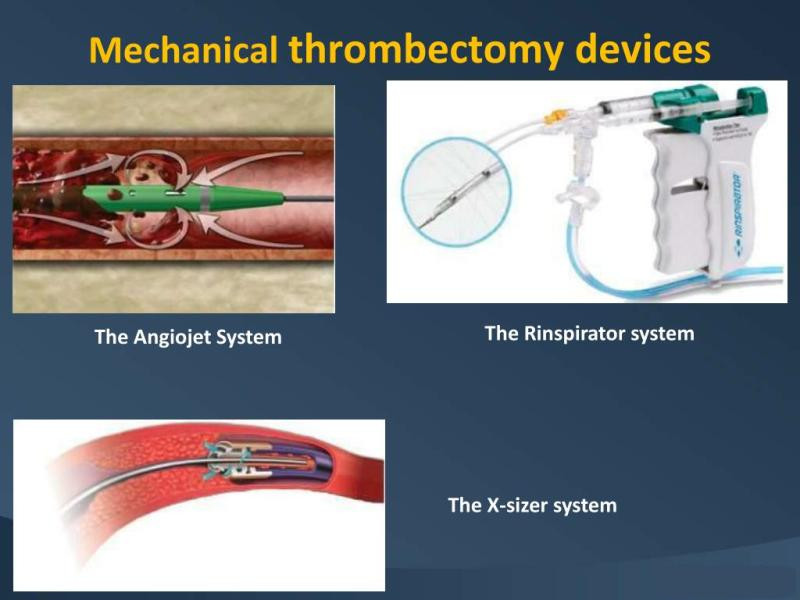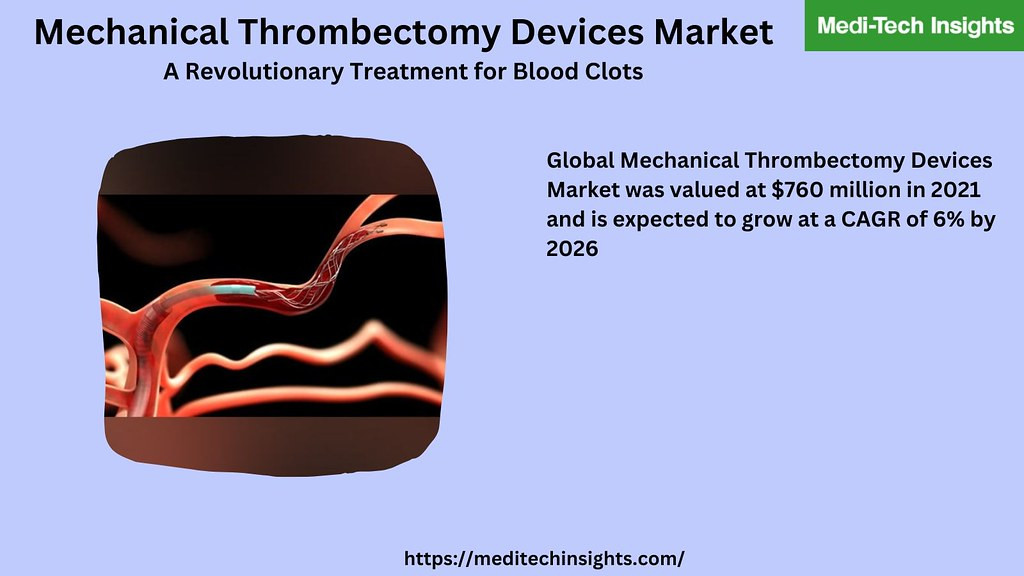Mechanical Thrombectomy Devices: A Growing Market Fueled by Rising Cardiovascular Diseases
The mechanical thrombectomy devices market is witnessing a significant surge, driven by a combination of factors, including an aging population, increased life expectancy, and advancements in medical technology. This market is anticipated to reach over USD XX billion by the year 2031, reflecting its substantial growth potential. The primary driver of this market expansion is the rising incidence of cardiovascular diseases, a global health concern.
Market Drivers: Increased Incidence of Cardiovascular Illnesses
Cardiovascular diseases pose a significant global health challenge, affecting millions worldwide. The prevalence of these diseases is on the rise, driven by factors such as sedentary lifestyles, poor dietary habits, and an aging population. This surge in cardiovascular disease cases is directly fueling the demand for effective treatment options, including mechanical thrombectomy devices.
Mechanical Thrombectomy Devices: A Minimally Invasive Solution
Mechanical thrombectomy devices offer a minimally invasive approach to removing blood clots, restoring blood flow to damaged organs, and minimizing the risk of complications. The rising need for swift and successful treatment of cardiovascular emergencies has led healthcare providers to invest in advanced thrombectomy devices and enhance their endovascular interventional skills.
Challenges: High Expense of Thrombectomy Instruments and Necessitating Regulatory
While the potential benefits of mechanical thrombectomy devices are undeniable, the market faces several challenges, the primary one being the high cost associated with these devices. The cost of acquiring and implementing thrombectomy technology can be a significant barrier for healthcare facilities, particularly those with limited resources.
Market Growth in North America: A Promising Future
North America is projected to dominate the mechanical thrombectomy devices market, witnessing significant growth over the forecast period. Several factors contribute to this regional dominance, including the rapid adoption of technologically advanced products, a rise in the number of heart patients, increasing demand for minimally invasive surgeries, availability of advanced medical facilities, and growing healthcare expenditure.
Market Segmentation: A Comprehensive Overview
The mechanical thrombectomy devices market is segmented based on various factors to gain a deeper understanding of its dynamics. These segmentation parameters include:
By Product Type
- Stent Retrievers
- Aspiration Catheters
- Embolectomy Catheters
- Other Devices
By Application
- Acute Ischemic Stroke
- Peripheral Artery Disease
- Deep Vein Thrombosis
- Pulmonary Embolism
By End-User
- Hospitals
- Clinics
- Ambulatory Surgical Centers
By Region
- North America
- Europe
- Asia-Pacific
- Latin America
- Middle East & Africa
The Future of Mechanical Thrombectomy Devices: A Bright Outlook
The mechanical thrombectomy devices market is poised for continued growth, driven by several factors, including the increasing prevalence of cardiovascular diseases, advancements in medical technology, and growing awareness about minimally invasive procedures. The market is expected to witness significant investments in research and development, leading to the introduction of innovative devices with enhanced capabilities. This ongoing innovation is crucial to address the challenges faced by the market and ensure that patients have access to the most effective treatment options available.
A Glimpse into the Future: The Mechanical Thrombectomy Devices Market
The future of the mechanical thrombectomy devices market is bright, driven by the growing demand for minimally invasive procedures, a rising number of cardiovascular patients, and ongoing technological advancements. The market is expected to see the introduction of new and improved devices, further enhancing patient outcomes and expanding the potential applications of mechanical thrombectomy.
The mechanical thrombectomy devices market holds immense promise, offering a solution to a significant global health concern. As the market continues to evolve, we can anticipate further advancements in device technology, improved treatment outcomes, and increased access to these life-saving interventions.



















